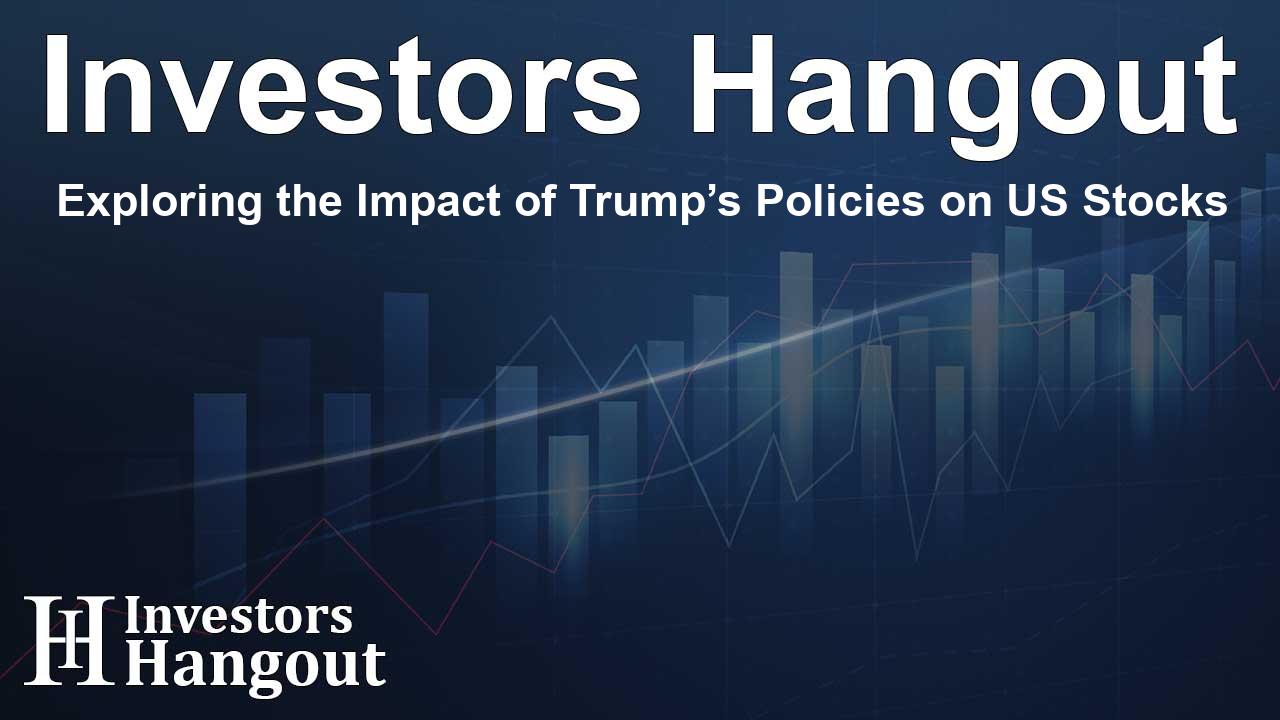Exploring the Impact of Trump’s Policies on US Stocks

The Dynamics of U.S. Stock Market Dominance
In recent times, the U.S. stocks have been asserting their dominance over international markets, and the possibility of this trend continuing seems plausible with the economic plans from the new administration. Investors are particularly focused on how the implementation of these policies by President-elect Donald Trump could play out, especially in context to trade dynamics and federal spending.
Current Market Performance and Economic Growth
The S&P 500 has seen an impressive rise of over 24% this year, significantly outperforming European, Asian, and emerging market benchmarks. This notable increase presents its highest valuation over the MSCI index of other nations in over two decades, according to LSEG Datastream. This robust performance is primarily fueled by strong earnings reports, particularly from the technology sector, which has been heavily influenced by advancements in artificial intelligence.
Investor Sentiments on U.S. Exceptionalism
Market experts are optimistic that Trump’s proposed strategies, including tax reforms and deregulation, may further solidify the U.S. position in the global market. The sentiments reflect that the aggressive growth agendas pushed by the administration could continue drawing investments towards U.S. equities. Venu Krishna, a key strategist at Barclays, hints at the advantages offered by these initiatives and the potential they hold for investor confidence in U.S. stocks as we head into the future.
Corporate Earnings as a Growth Engine
A significant driver for the uplift in U.S. equities can be attributed to strong earnings growth within corporate America. Expected earnings for S&P 500 companies are projected to increase by 9.9% this year, with an even more remarkable 14.2% forecast for next year, according to data from LSEG Datastream. Comparatively, companies on the European STOXX 600 index are anticipated to see much slower earnings growth.
Contributions from Major Technology Firms
Another factor propelling U.S. stocks is the tremendous influence of major tech giants. Companies such as Nvidia, Apple, and Microsoft dominate the market landscape, impacting indices like the S&P 500 significantly. For instance, these tech behemoths hold a staggering combined market value surpassing $14 trillion, which dramatically exceeds the entire market capitalization of the European STOXX 600. This weighty presence solidifies the economic foundation of the region.
The U.S. Economic Outlook and Trade Policies
Projecting into the future, the U.S. economy is expected to maintain a growth trajectory with predictions of 2.8% growth for this year and 2.2% next year. In contrast, the eurozone anticipates much lower growth rates, revealing a potential for widening the economic gap favoring U.S. equities. However, there remains concern over the potential consequences of increased tariffs on global trade relationships.
Potential Risks and Global Dynamics
While Trump aims to implement tariffs that may protect U.S. interests, there are cautionary tales on retaliatory measures from trading partners. Concerns exist over how these trade frictions may ultimately affect the domestic market. Yet analysts suggest that the potential short-term pain could be outweighed by long-term gains if tariffs effectively enhance U.S. market competitiveness.
Conclusion: The Trends Shaping Investment Strategies
For now, the narrative surrounding U.S. stock performance remains bullish, with significant gains observed over the past decade, exceeding those of European equities. The fundamental mix of strong earnings, favorable market conditions, and policy expectations gives investors reason to remain optimistic. As Colin Graham from Robeco puts it, sustained momentum often attracts investors, indicating that the market dynamics will very much remain in favor of U.S. equities in the near future.
Frequently Asked Questions
What impact could Trump's policies have on U.S. stocks?
Trump's economic strategies, including tax cuts and deregulation, could enhance investor confidence and potentially lead to further growth in U.S. equities.
How have U.S. stocks performed compared to global markets?
The S&P 500 has significantly outperformed global benchmarks, with notable increases driven by strong corporate earnings, especially in the tech sector.
What are the forecasts for U.S. economic growth?
The U.S. economy is expected to grow by 2.8% this year, with continued projections of over 2% growth in the following year, differing from slower growth forecasts in the eurozone.
Could tariffs impact the U.S. economy?
While tariffs could provide protection for U.S. interests, there's concern about potential retaliation from trading partners that could disrupt the market landscape.
What role do technology companies play in U.S. stock performance?
Major technology firms like Nvidia, Apple, and Microsoft are critical to driving market growth and bolstering the performance of the S&P 500.
About Investors Hangout
Investors Hangout is a leading online stock forum for financial discussion and learning, offering a wide range of free tools and resources. It draws in traders of all levels, who exchange market knowledge, investigate trading tactics, and keep an eye on industry developments in real time. Featuring financial articles, stock message boards, quotes, charts, company profiles, and live news updates. Through cooperative learning and a wealth of informational resources, it helps users from novices creating their first portfolios to experts honing their techniques. Join Investors Hangout today: https://investorshangout.com/
Disclaimer: The content of this article is solely for general informational purposes only; it does not represent legal, financial, or investment advice. Investors Hangout does not offer financial advice; the author is not a licensed financial advisor. Consult a qualified advisor before making any financial or investment decisions based on this article. The author's interpretation of publicly available data shapes the opinions presented here; as a result, they should not be taken as advice to purchase, sell, or hold any securities mentioned or any other investments. The author does not guarantee the accuracy, completeness, or timeliness of any material, providing it "as is." Information and market conditions may change; past performance is not indicative of future outcomes. If any of the material offered here is inaccurate, please contact us for corrections.